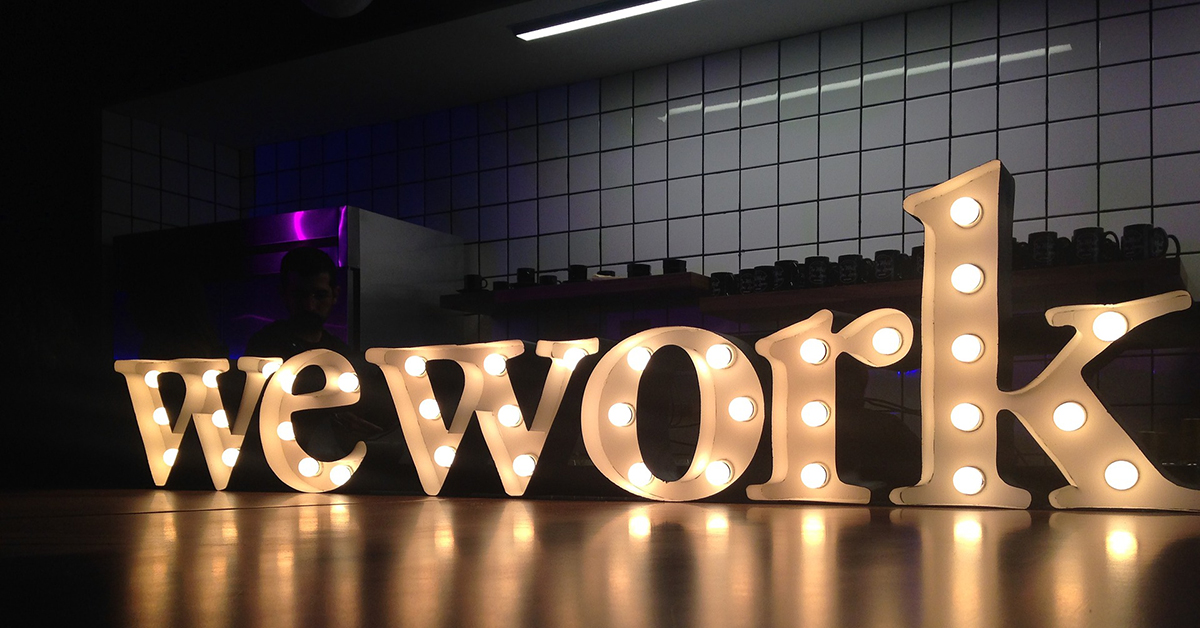
WeWork Makes Big Investment in the Northwest Arkansas Metropolitan Area
When the Northwest Arkansas Metropolitan Area was considered one of the 25 fastest-growing metros in the United States according to the U.S. Census Bureau in 2016, WeWork took notice.
The co-working space giant had been sniffing around for a new locale for another ground-up project like their first successful development, Dock 72, in Brooklyn, N.Y.
Partnering with local developer City Center LLC, WeWork announced last Spring that it will develop a 200,000 square-foot WeWork space Bentonville, known as Bentonville Square.
Unlike the Brooklyn project though, this one’s office space will belong entirely to WeWork and WeWork will also choose the tenants for the ground floor retail space.
What made Bentonville so attractive to WeWork as compared to other possible destinations around the country?
For one, Bentonville is also the location of the home office for Walmart, and a headquarters of that size and scale is attractive to WeWork. Walmart encourages its vendors to set up shop in Bentonville in order to establish a better relationship.
That means there is an overwhelming need for office space for all of these partner companies – which is where WeWork wants to swoop in and provide the needed space requirements.
But more importantly, Northwest Arkansas is on a significant upswing both in growth and in education.
Across the state, Arkansas has made coding and computer science classes a requirement for all public high school students since 2015.
Having this education better prepares Arkansas students to be ready to work once their schooling is done. One of the missions for WeWork is to cultivate that homegrown talent and use it as a way of bettering the community by creating a sharing culture and community involvement.
With Walmart planning a remodeling of its own headquarters to become more technologically advanced and more employee-friendly, a lot of the commuting to and from Bentonville will likely be done via bicycle on the Razorback Greenway, a dedicated bike trail that connects Bentonville to neighboring towns like Fayettevile, Springdale and Rogers.
Part of the growth of Northwestern Arkansas has been due to the development of the bike trail, as many young professionals appreciate the ability to bike to and from work rather than have to drive or use some sort of public transit.
A lot of newer office space development in the Northwest Arkansas Metro area is being built with office showers and wall hangers for bicycles to accommodate this culture.
Couple that with the aesthetic quality of the bike trail, and home values are increasing. Some estimates for homes along the tree-lined trail see a value increase of about $8,000.
Combine Walmart’s home base, the Greenway and other growth in the area and it has led to a significant spike in multifamily development.
According to the Bentonville website, $304 million more in permits were issued in 2018 than in 2017, an increase of 62 percent.
WeWork isn’t alone in trying to capitalize on this boom in Northwest Arkansas.
A report released in the Spring by the University of Arkansas Center for Business Research showed new office supply of 136,000 square feet added in the second half of 2018 in Northwest Arkansas with an office vacancy rate drop to 8.4 percent, the lowest the area has had since 2004.
But WeWork is hoping to capitalize on a combination of local residents who are better trained for the workforce who want to stay in Northwest Arkansas and who might enjoy the perks and benefits of the Greenway.
“As we explored the market, it quickly became obvious Northwest Arkansas was a market primed for continuous growth with untapped demand,” James Slade, Vice President of Architecture for WeWork told Bisnow recently. “With growth set to double by 2035, Northwest Arkansas is primed to be a regional powerhouse, and its highly educated workforce is at the heart of this potential.”
Time to Focus on Affordable Housing
Taxes on real estate are not the answer. Sign the petition calling on Congress to address our country’s housing shortage.





